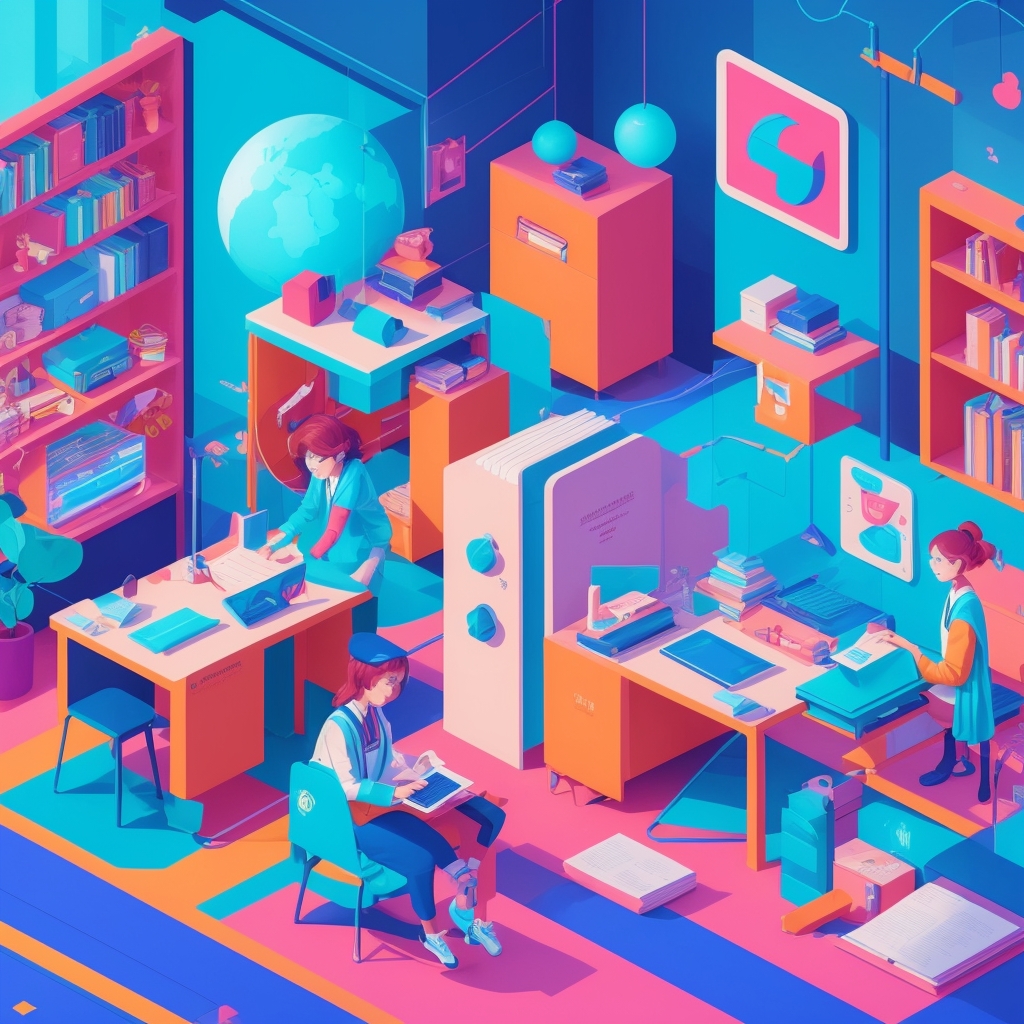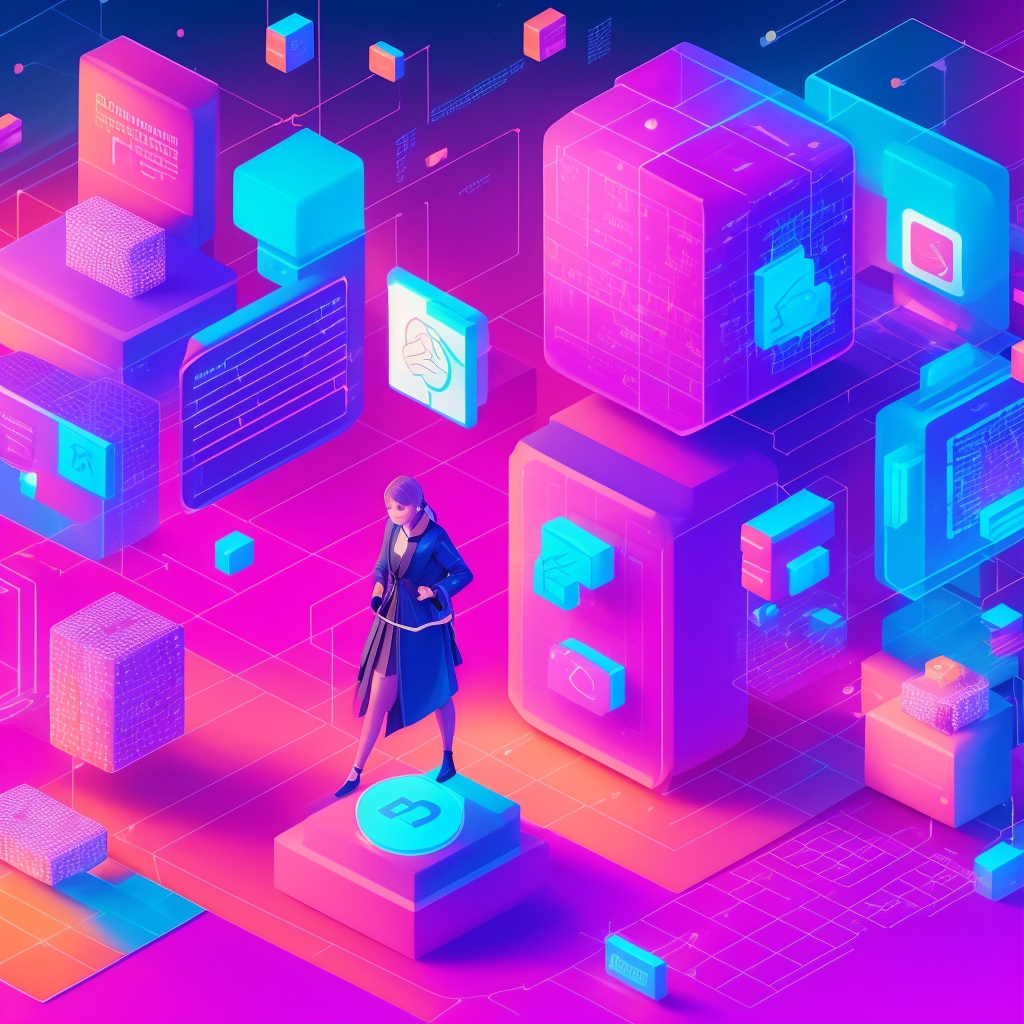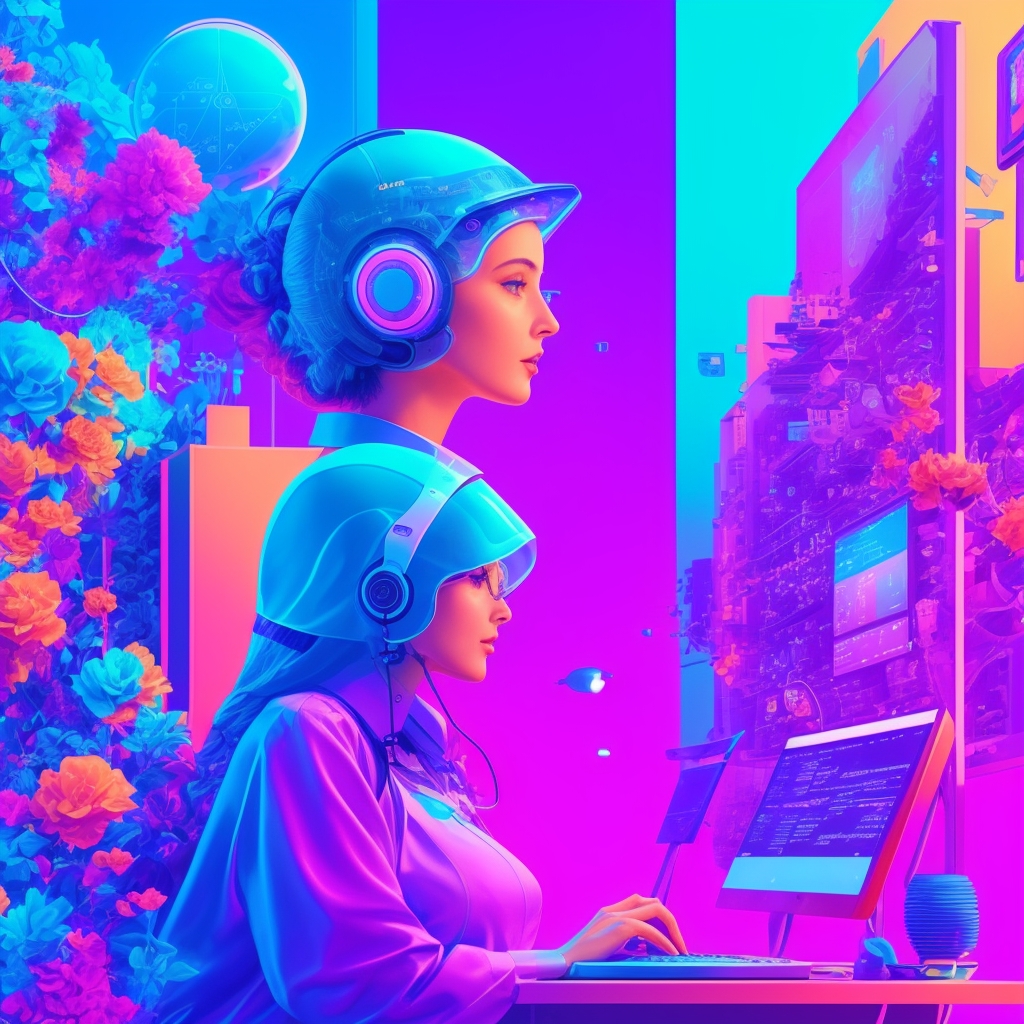The year 2025 marks a decisive turning point in education and careers. As technology continues to evolve at a breakneck pace, it’s profoundly transforming how we teach and learn. From virtual classrooms to personalized learning platforms powered by AI, technological innovations are shaping the future of education. This article explores how technology is changing the educational landscape in 2025, highlighting concrete examples, use cases, key points, and best practices.
According to a recent market analysis, the global EdTech market is projected to reach over $400 billion by 2025, underscoring the rapid adoption and integration of digital solutions into learning environments. This growth signifies a systemic shift, not just a temporary trend.
Transforming Teaching Methods and Learning Experiences
Online Learning and Digital Platforms: The New Norm
One of the most remarkable transformations is the widespread adoption of online learning. Platforms like Coursera, edX, and Khan Academy have become ubiquitous, offering quality courses accessible to everyone, regardless of geographical location. In 2025, these platforms have integrated advanced technologies, such as artificial intelligence, to personalize learning paths based on individual student needs.
- Micro-credentials and Lifelong Learning: Beyond traditional degrees, 2025 sees a surge in micro-credentials and skill-based certifications. These shorter, focused courses, often delivered online, empower individuals to continuously reskill and upskill in response to evolving job market demands, fostering lifelong learning.
- Global Collaboration: Digital platforms facilitate unprecedented global collaboration, allowing students from different continents to work together on projects, fostering cross-cultural understanding and global digital literacy.
Augmented and Virtual Reality: Immersive Education
Augmented Reality (AR) and Virtual Reality (VR) have become essential tools in education, moving beyond niche applications. They allow students to experience immersive learning, whether it’s:
- Exploring ancient civilizations in a fully recreated VR environment.
- Conducting complex scientific experiments in a virtual lab without physical constraints or dangers.
- Practicing surgical procedures or engineering tasks with AR overlays guiding them step-by-step.
These technologies make learning more engaging, interactive, and experiential. A 2024 survey by the EdTech Consortium reported that over 60% of K-12 institutions and 75% of higher education institutions are integrating or piloting AR/VR solutions for enhanced learning.
Artificial Intelligence and Adaptive Learning: Tailoring Education
Artificial Intelligence (AI) plays a crucial role in personalizing education, moving beyond simple content recommendation. Adaptive learning systems use AI to:
- Analyze student performance and adjust educational content in real-time.
- Provide immediate, targeted feedback.
- Identify learning gaps and suggest remediation.
- Predict student struggles and offer proactive support.
This allows students to progress at their own pace, focusing on the areas where they need the most help, leading to demonstrably better learning outcomes. “AI’s true power lies in its ability to democratize personalized learning at scale,” notes Dr. Anya Sharma, a leading AI in Education researcher. “It’s not just about efficiency; it’s about equitable access to tailored instruction.”
Concrete Examples and Cutting-Edge Use Cases in 2025
The Adaptive Digital Campus
Consider “NexGen University,” a pioneering institution that leverages technology to redefine the higher education experience. Every lecture hall is equipped with AI-powered interactive whiteboards that can instantly transcribe discussions and pull up relevant supplementary material. Students utilize mixed reality headsets for labs, simulating complex engineering designs or exploring anatomical models in 3D. Their learning paths are continuously optimized by AI tutors that provide 24/7 support and personalized assignment recommendations.
Universities and Blockchain for Secure Credentials
Universities are widely adopting cutting-edge technologies like blockchain to secure and simplify the diploma verification process. This technology ensures:
- The authenticity of certifications and academic records.
- Immutable and verifiable digital transcripts.
- Facilitated sharing of professional qualifications with potential employers globally.
This minimizes fraud and streamlines administrative processes, creating a more trustworthy and efficient credentialing system for the digital age. Institutions like MIT and the University of Nicosia have been at the forefront of this adoption, setting a precedent for global standards.
AI-Powered Predictive Analytics in K-12
In 2025, many school districts use AI-powered predictive analytics to identify students at risk of falling behind or dropping out. By analyzing attendance, performance, and engagement data, these systems can alert teachers and counselors early, allowing for timely interventions and personalized support plans. This proactive approach significantly improves student retention and success rates.
Code Snippet for an Educational Application with Advanced Logic
Here’s a simplified code snippet illustrating a more sophisticated application that suggests learning content and intervention based on student performance and engagement, incorporating basic AI logic:
def analyze_and_suggest(student_data):
performance_threshold = 70
engagement_threshold = 0.6 # e.g., 60% completion rate for assignments
math_score = student_data.get('math_score', 0)
science_score = student_data.get('science_score', 0)
english_score = student_data.get('english_score', 0)
assignment_completion_rate = student_data.get('completion_rate', 0)
attendance_rate = student_data.get('attendance_rate', 0)
suggestions = []
# Academic Performance-based suggestions
if math_score < performance_threshold:
suggestions.append("Math reinforcement course: Focus on Algebra fundamentals.")
if science_score < performance_threshold:
suggestions.append("Virtual science lab: Hands-on Chemistry simulations.")
if english_score < performance_threshold:
suggestions.append("Interactive English grammar exercises and writing workshops.")
# Engagement and Attendance-based suggestions
if assignment_completion_rate < engagement_threshold or attendance_rate < 0.8:
suggestions.append("Personalized check-in with academic advisor to discuss engagement challenges.")
suggestions.append("Explore gamified learning modules for improved motivation.")
if not suggestions:
return ["Advanced courses and elective options: Explore AI ethics or Quantum Computing."]
else:
return suggestions
# Example student data
student1 = {'math_score': 65, 'science_score': 85, 'english_score': 72, 'completion_rate': 0.5, 'attendance_rate': 0.75}
student2 = {'math_score': 90, 'science_score': 92, 'english_score': 88, 'completion_rate': 0.95, 'attendance_rate': 0.98}
print(f"Suggestions for Student 1: {analyze_and_suggest(student1)}")
print(f"Suggestions for Student 2: {analyze_and_suggest(student2)}")Key Points and Best Practices for EdTech Integration in 2025
Successful integration of technology in education in 2025 hinges on several core principles:
- Personalization at Scale: One of the major advantages of technology in education is the ability to personalize learning. Teachers should leverage AI tools to create tailored educational paths, adapting content, pace, and style to individual student needs and preferences.
- Enhanced Accessibility and Inclusivity: Digital technologies make education accessible to a wider audience, including students with disabilities or those in remote areas. It’s crucial to design and integrate accessibility tools (e.g., text-to-speech, sign language avatars, adaptive interfaces) into all educational platforms from the outset, addressing the digital divide.
- Engagement Through Immersion: The use of immersive technologies like AR and VR significantly increases student engagement and retention. Teachers and instructional designers must be trained to effectively utilize these tools to maximize their pedagogical effectiveness and create memorable learning experiences.
- Data Security and Privacy: With the increasing amount of sensitive data collected on students (performance, behavior, biometric), it’s absolutely essential to implement rigorous data security measures and adhere to strict privacy regulations (like GDPR or FERPA equivalents). Building trust through transparent data governance is paramount.
- Teacher Empowerment and Professional Development: Technology is a tool, and its effectiveness depends on the educator. Continuous professional development for teachers in digital literacy, pedagogical integration of new tools, and data interpretation is vital to transform them into facilitators of technologically enhanced learning.
- Focus on 21st-Century Skills: Technology enables a shift from rote memorization to fostering critical thinking, problem-solving, creativity, collaboration, and digital literacy. Educational frameworks in 2025 prioritize these skills, preparing students for a rapidly evolving job market.
FAQ
How does technology affect teachers in 2025?
In 2025, teachers evolve into learning facilitators and content curators. Technology automates administrative tasks and provides data insights, allowing educators to focus more on personalized interaction, deeper pedagogical guidance, and fostering critical thinking. They are no longer just delivering information but guiding students through complex digital learning environments.
Are online degrees as recognized as on-campus degrees in 2025?
Yes, in 2025, the recognition of online degrees has significantly increased. This is due to improved quality standards, the integration of immersive learning experiences, and the widespread use of blockchain for certifying qualifications. Many reputable universities now offer hybrid or fully online programs that are indistinguishable in value from their on-campus counterparts.
What are the main challenges of integrating technology into education by 2025?
Challenges include the persistent digital divide, ensuring equitable access to technology and high-speed internet for all students; the need for continuous teacher training to keep pace with rapid technological advancements; implementing robust data privacy and security measures; and mitigating the risk of over-reliance on technology at the expense of essential human interaction and social-emotional development.
Can technology replace teachers in 2025?
No, technology is a powerful enabler and an indispensable tool that helps teachers improve the learning experience, but it does not replace them. While AI can personalize content and automate grading, it cannot replicate the nuanced human interaction, emotional intelligence, mentorship, and critical thinking guidance that skilled teachers provide. Technology augments, rather than replaces, the human element of education.
What is the importance of adaptive learning in the current educational landscape?
Adaptive learning is crucial because it allows education to be meticulously personalized according to individual student needs, learning styles, and pace. By continuously analyzing performance data, it ensures that each student receives the right content at the right time, thereby optimizing learning outcomes, boosting engagement, and making education truly student-centric.
How is gamification impacting learning in 2025?
Gamification, the application of game-design elements and game principles in non-game contexts, is widely used in 2025 to boost student engagement and motivation. From badge systems and leaderboards to immersive educational games, it makes learning more interactive, enjoyable, and encourages healthy competition and perseverance. This approach is particularly effective in language acquisition, STEM subjects, and skill development.
Conclusion
In 2025, technology has significantly transformed education, offering unprecedented opportunities to personalize learning and make it more accessible and engaging. From AI-driven adaptive platforms to immersive AR/VR experiences and blockchain-secured credentials, the landscape has evolved dramatically. As we continue to integrate these innovations, it’s essential to maintain a balance between technological advancement and sound pedagogy to ensure all students benefit from these advancements while fostering crucial human skills. The future of education is promising, with technology leading the way in creating dynamic, inclusive, and effective learning environments globally.







